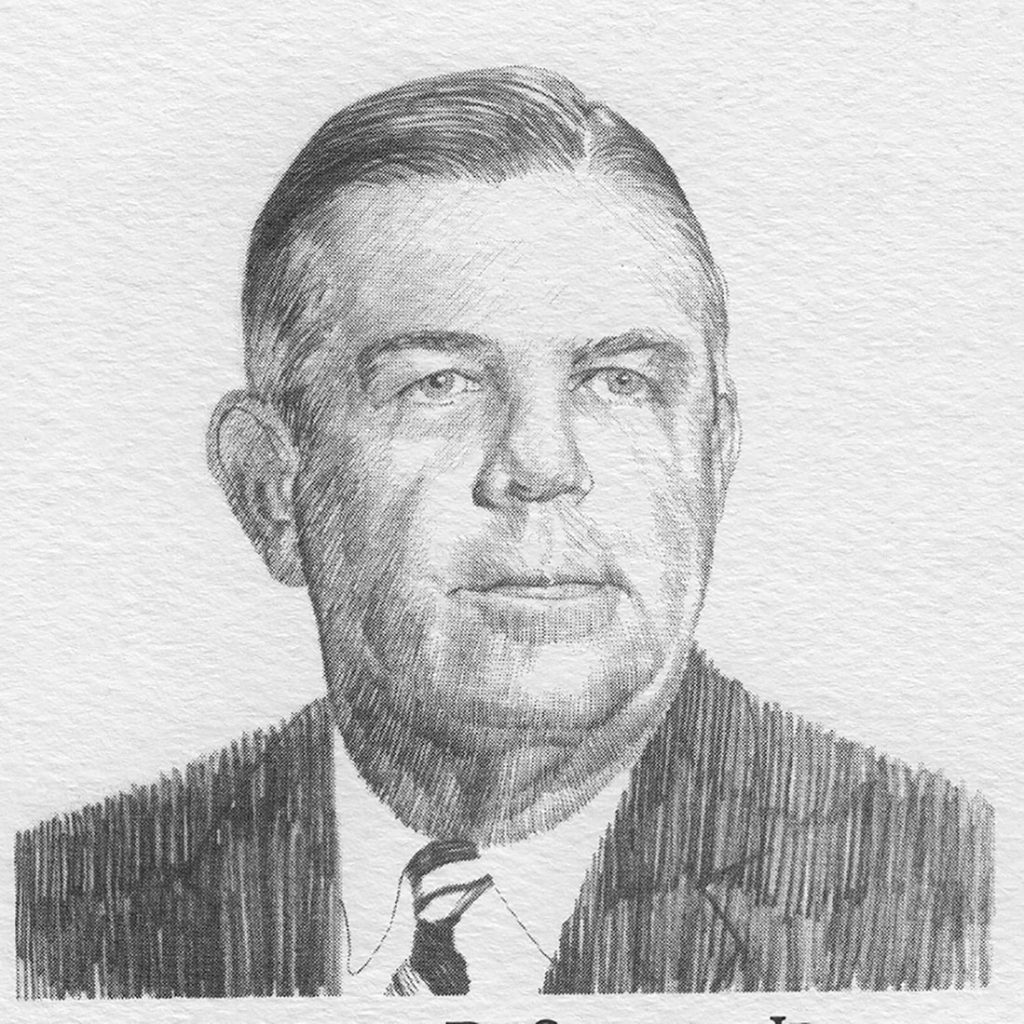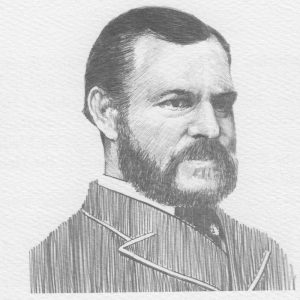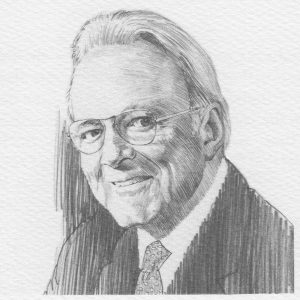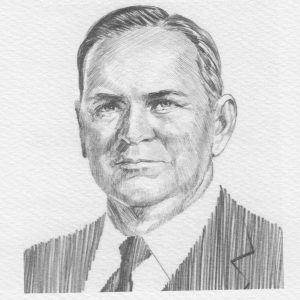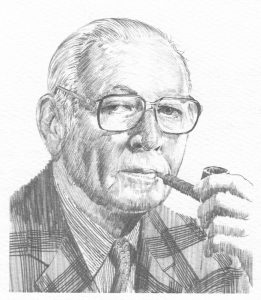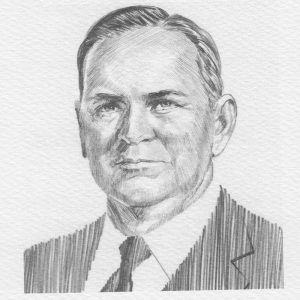The late William D. Sellers, Jr. – Chairman and Chief Executive Officer of Baggett Transportation Company, of Birmingham – has been described as the type of citizen whose work behind the scenes makes a big difference in the quality of life in the community and/or state.
This distinguished transportation executive and benefactor of higher education was born in Anniston, Alabama, on Friday, June 13, 1913. Because his father established a medical practice in Birmingham four years later, William, Jr. grew up in Birmingham. After graduating from high school in 1931, he obtained a football scholarship at The University of Alabama. (He played on the same freshman team as Paul “Bear” Bryant and in later years was instrumental in persuading his friend and former teammate to return to the University as coach).
To help finance his education during those lean years of the Great Depression, William Sellers used his ingenuity to find or create jobs for himself. He received free room by taking care of Gorgas Hall-stoking the furnace and checking the hot and cold water supply. He persuaded the Atlantic & Pacific Tea Company, a local florist, and a furniture store to hire him as a campus representative who would convince fraternity, sorority, and boarding houses to patronize their businesses.
After receiving his pre-med degree in 1934, William Sellers completed one year of medical school at the University. He continued to use his ingenuity to finance his education. For example, when the Rose Bowl Special rolled out of Tuscaloosa in December 1934, it was William Sellers who had the advertising contract to give away free Coca Colas.
In September 1935, he transferred to the medical school at Tulane. After a short time, he realized he could not work, earn a living, and go to school at the same time. He left medical school to take a job selling trucks and buses for White Motors of New Orleans. This decision set the stage for what would ultimately lead to a distinguished career as a transportation executive.
The sales job with White Motors took him back to his hometown and home state for a two-year stint. When he was to be transferred to Houston, he chose to stay in Alabama. He signed on with Pan American Petroleum, a division of Standard Oil of Indiana. He called on cities, counties, education boards, and companies throughout the state, selling a host of petroleum products.
In 1941, William Sellers called on one of his customers, Baggett Transportation Company. This sales call changed his life because he was offered a job and part interest in the company. On December 1, 1941, William Sellers’ name was added to the payroll.
Five years later, William Sellers bought full control of the company, which under his leadership became one of the most successful transportation companies in the nation.
In 1941, Baggett Transportation Company had only about 19 trailers and 15 or 20 power units – doing business only in Alabama. Under William Sellers’ leadership, Baggett became one of the major motor freight carriers of ammunition for the Department of Defense and for commercial manufacturers. Operating in 48 states, the company also became a major hauler, of general commodities, using more than 900 trailers with an equivalent number of power units.
“It takes good supervision and good teamwork to get the job done,” William Sellers once said. But he provided even more incentives to excellence. He not only made sure that everyone was
well trained but also encouraged safety in every phase of the business through bonuses for safe operations. He provided profit-sharing programs and good retirement programs for employees. Because the employees respected “Mr. William” (as they called him) and his goals, they rarely left Baggett; and under his leadership, Baggett Transportation Company established an enviable nationwide record in sales and service.
While leading Baggett Transportation Company to new heights, William Sellers also found time to encourage the development of the transportation industry through active participation in the Alabama Trucking Association. He served three terms as the association’s president and also as a director. He also served as a chairman and director of the Alabama Motorists Association. This “pretty good trucker,” as he once described himself, was also what he called “a part-time banker”-that is, he was a member of the board of directors of First Alabama Bank of Birmingham (now First Alabama Bancshares) and served as chairman of the board from 1977 to 1986.
He was also on the board of directors of Multimedia (parent company of the Montgomery Advertiser-Alabama Journal Newspapers) and of American Heritage Life Insurance Company of Jacksonville, Florida, and he served as a director of Alabama State Docks.
This busy, but well-organized, executive also gave his time and financial support to enhance the quality of higher education in Alabama, particularly at his alma mater, The University of Alabama. He was one of the founders of the Chair of Transportation in the College of Commerce and Business Administration. He served as a member of the C&BA Board of Visitors and as chairman of the Commerce Executives Society-both groups dedicated to providing private support for the enrichment of the College’s programs and services to students. Also a member of the University’s President’s Cabinet, he led the University’s successful sesquicentennial campaign for capital funding. With a goal of $38.4 million, the campaign pledges reached $61.8 million from alumni and friends of the University. William Sellers said the success was due to the staff and alumni scattered throughout0the country. But both Drs. Roger Sayers, President of the University, and John L. Blackburn, former Vice President of Development, have attributed much of the success to William Sellers, a great friend of the University who worked every day to inspire others to support the enrichment of education at the Capstone.
In his hometown, William Sellers lent his time, talent, and financial support to help provide needed services to citizens. As a president and trustee of the Crippled Children’s Clinic and Foundation and the Eye Foundation Hospital, he was instrumental in raising funds for needed treatment centers. He helped establish the Charley Boswell Golf Classic to benefit the handicapped. He was also a member of the Birmingham Area Council of the Boy Scouts of America. For his contributions to the business community and by efforts on behalf of higher education and the community service, William Sellers, Jr. received the following recognitions:
In 1974, the H. Chester Webb Award for distinguished service from the Alabama Trucking Association; in 1981, an honorary doctor of laws degree from The University of Alabama; in 1984, the Outstanding Civic Leader Award from the Alabama Chapter of the National Society of Fund Raising Executives; The University of Alabama National Alumni Association’s Distinguished Alumni Award; and a certificate of appreciation from the State of Alabama for outstanding and dedicated service in the area of education; in 1985 induction into the Alabama Academy of Honor for accomplishments and service benefitting or reflecting great credit on the state.
William Sellers was a man who always strove for excellence and who always enjoyed what he was doing-whether at work or play. (An avid golfer, he was proud that he had achieved six holes in-one-the last hole-in-one being made in 1985.)
While still doing the work he loved to do, William Sellers, Jr. died following a heart attack in his office, on Friday, July 27, 1990.
Born on a Friday in 1913, he left this world on a Friday in 1990, leaving behind a legacy of good work, good service, and goodwill. He will be missed.
William Sellers, Jr. is survived by his wife, Virginia Forsyth Sellers (whom he married in 1937) and two daughters: Forsyth (Mrs. Joseph M. Donald, Jr.) and Mary (Mrs. Henry Crommelin) of Birmingham.

